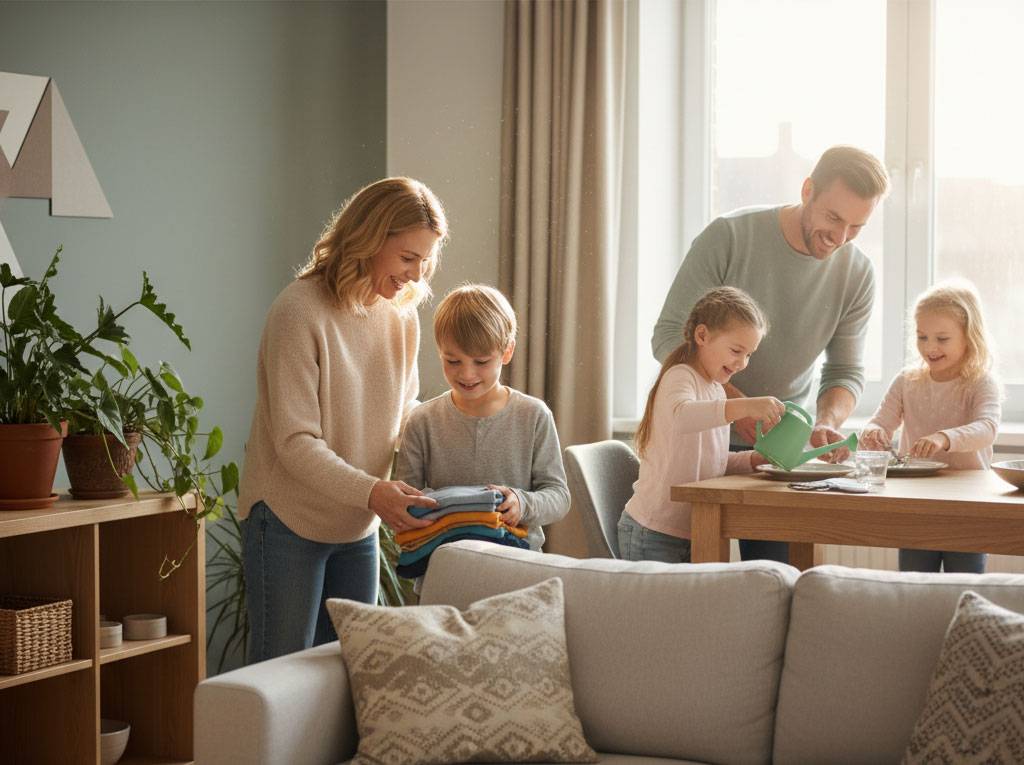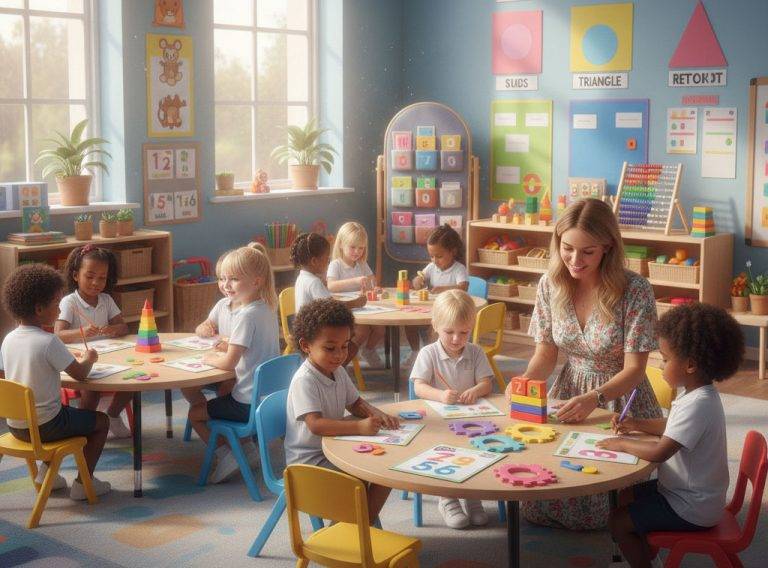Teaching Responsibility: Simple Household Tasks for Kids
A lot of us want our kids to grow up responsible, capable and independent. But responsibility doesn’t just magically appear one day when they’re older. It’s something that grows little by little through everyday experiences. And one of the easiest ways to help kids learn it early is by involving them in simple household tasks. Yes, even the tiny ones who still put socks on their hands for fun can help in meaningful ways.
I didn’t grow up doing many chores, and I remember the shock of adulthood when I realized living spaces don’t stay clean by themselves. So with my own kids, I took the opposite approach. I wanted them to see that everyone in a home contributes. No gold stars needed, no heavy lectures. Just: we live here together, so we take care of it together.
This isn’t about perfection. It’s about giving kids the chance to feel capable and needed.
Why Household Tasks Matter
Kids love feeling useful. When they get a chance to pitch in, even in small ways, it boosts their confidence. They feel trusted. They see their actions have results. A chair gets pushed in. The table gets wiped. The laundry goes from chaos pile to neat stack (or close enough).
Chores also teach long-term habits. It’s easier to help a child learn to clean a room than to teach a 22-year-old who’s never had to pick up a sock before. And when chores become a natural part of daily life, kids don’t feel like they’re being punished. It’s just what we do.
Start Small and Don’t Expect Perfection
If your child is two, you’re not handing them a bucket of bleach. Think simple, safe, and doable.
Examples:
- Putting toys back in bins
- Handing you socks while folding laundry
- Setting napkins at the table
As kids get older, responsibilities can grow:
- Making their own bed
- Watering plants
- Wiping kitchen counters
- Feeding pets
The goal isn’t to have things done perfectly. If a bed is messy? Great. The child tried. Praise the effort, not the result.
Takeaway: When you teach responsibility, consistency matters more than precision.
Make It Routine, Not Random
Kids thrive on routine. If tasks are unpredictable or only come up when parents are frustrated, chores feel like punishment. Instead, anchor tasks to daily rhythms:
Morning: make bed
Afternoon: put backpack away
Evening: clear plates after dinner
No need for chore charts unless they help. Some families like them; others do fine with simple verbal reminders. The real magic is in making tasks predictable and expected.
Keep It Light and Encouraging
Positive tone makes all the difference. A child who hears, “You did a great job helping!” is much more likely to feel proud and want to help again.
On the other hand, criticism like “That’s not how you do it” can shut things down fast.
One phrase I use often:
“Thank you for helping. We’re a team.”
That sense of teamwork is powerful. Kids feel included, not bossed around.
A Quick Word About Patience
There will be days when helping takes longer than doing it yourself. There will be spills. Socks will go in the wrong drawers. A spilled plant might look like a potting soil hurricane. Take a deep breath. These are the moments where responsibility begins to grow roots.
And honestly, those imperfect moments often turn into fun memories. Like the time my child insisted the best way to fold shirts was to roll them into “clothes burritos.” Technically incorrect. Comically unforgettable.
If you want to take the load off once in a while or need professional help keeping your home tidy, services like house cleaning Los Angeles can make a big difference. It doesn’t replace teaching responsibility at home, but it can help maintain a clean environment that sets a good example.
Age-Appropriate Task Ideas
Here are some gentle suggestions by age group. Adjust for your child’s abilities and personality.
Toddlers (2–4):
- Put toys back in baskets
- Help feed pets by handing scoop or placing bowls down
- Dust with a sock on hand (surprisingly effective)
Young Kids (5–7):
- Make their bed
- Help sweep crumbs into a dustpan
- Wipe kitchen table after meals
- Help pack snacks for school
Older Kids (8–11):
- Fold laundry
- Load or unload dishwasher
- Take out trash
- Help with simple meal prep (scrambling eggs, washing veggies)
Preteens and Teens (12+):
- Clean bathrooms
- Do basic vacuuming
- Cook simple meals
- Laundry start-to-finish
Remember: independence happens one small step at a time.
Turn Tasks Into Connection, Not Conflict
One of the best ways to help kids enjoy chores is to do them together. Put on a playlist, dance around with a broom, or make tidying the living room a 5-minute challenge. Humor goes far.
Also: give choices.
“Would you rather help fold laundry or wipe the counters?”
Choice gives kids a sense of control.
Remember: You’re Modeling the Behavior Too
Kids watch far more than they listen. If chores are always done with visible resentment or exhaustion, kids might associate household tasks with negativity. If chores are approached casually, even cheerfully when possible, kids learn that caring for a home is just part of living.
You don’t have to be perfect. Just be real. “I don’t love doing dishes, but I do love having a clean kitchen” is a perfectly human way to say it.
Conclusion
Teaching responsibility through simple household tasks isn’t about strict rules or flawless cleaning. It’s about raising kids who feel capable, connected and part of the team. Little by little, they learn that their contribution matters. And in the process, they build confidence that extends far beyond laundry piles and dinner tables.
If you approach chores with patience, encouragement and a sense of togetherness, those small habits will help shape thoughtful, independent humans. And along the way, your home becomes a place where everyone’s efforts are valued.
Responsibility isn’t taught in one big moment. It grows through thousands of tiny ones. And each time your child helps, even in small ways, they’re learning something important about themselves and their place in the world.




